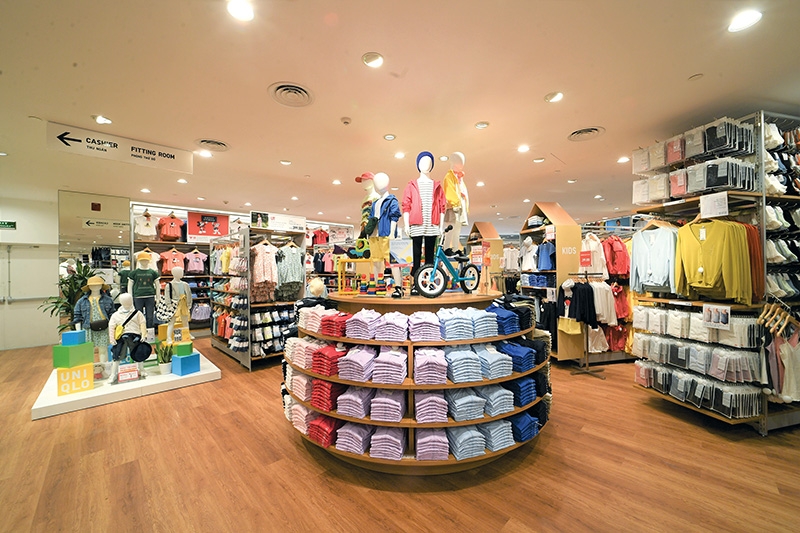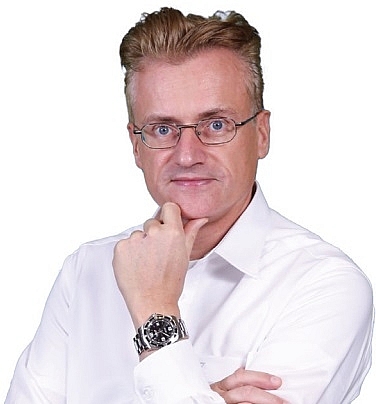Online community takes on map mishap
 |
| UNIQLO has been focusing on sustainability in order to lure in new customers |
Immediately after calling for a fervent wave of boycott on social networks of Swedish fashion giant H&M, the Vietnamese online community began to discover other global fashion brands such as Chanel, Louis Vuitton, YSL, Gucci, Burberry, Saint Laurent, UNIQLO, and Adidas that have all also posted a map showing China’s illegal “nine-dash line” on their products and on their Chinese websites.
Vietnamese consumers expressed their disappointment online, especially since some of the brands are very popular in the Vietnamese market. UNIQLO in particular was singled out on social media by Vietnamese consumers.
“The world’s leading fashion brands underestimate the issue of territorial sovereignty of countries,” said Facebook user Nga.
Another Facebook user called Vu said, “UNIQLO should explain to the community here. Nobody wants a boycott, but they should respect the sovereignty of our country.”
In recent years, UNIQLO together with H&M and Zara have become favourite fashion brands in Vietnam, especially for young people, who are representing the affordable customer segment that such retailers target to expand their business and capture a bigger market share in Vietnam.
Fast Retailing Group, which owns UNIQLO, has already opened seven stores in Hanoi and Ho Chi Minh City since its first appearance at the end of 2019.
VIR contacted UNIQLO to clarify the issue, but was only told that company leaders are meeting to discuss and will provide a response at a later date.
Since its foundation, UNIQLO has received support from local consumers thanks to its reputation and sustainable fashion orientation. The brand also uses another approach than its competitors as it focuses on quality rather than design, with an eco-friendly orientation that actively calls for cooperation in the fashion industry and the participation of consumers to minimise chemical pollution and emissions to water sources.
In an effort to ensure endorsement from its consumers and follow a sustainable fashion journey, H&M has implemented a Let’s Reuse programme, including activities such as collecting second-hand clothes and minimising the use of bags. But the latest wave of boycotts against H&M with viral hashtags on social platforms may hurt this brand’s efforts.
At least one Vietnamese social media user, known as Su, urged calm over the situation after pointing out that the maps used on the Chinese websites of various fashion brands are actually utilising maps created by Chinese tech company Baidu, as the country does not allow the use of Google Maps. Therefore, the user said, the use of the maps is not really the fault of the fashion brands themselves. Chanel, Louis Vuitton, Burberry, and Gucci all use Baidu maps on their Chinese company websites.
“Websites in China cannot access Google services, so it’s not true to say that UNIQLO endorses the nine-dash line,” the user clarified.
Spokesperson of the Vietnamese Ministry of Foreign Affairs Le Thi Thu Hang commented that the country “pays special attention to this issue” and requires businesses to respect the Vietnam’s sovereignty over the Paracel and Spratly archipelagos, as well as over the related waters in the East Sea.
| Nguyen Quang Trung - Head of Management Department, RMIT University
Business integrity is what matters in the long run and is a well-acknowledged principle in management. A company might rely on different capabilities to reach a level of success, but it is the enduring commitment to uphold core values like integrity that keep it at the top. If a company diverges from its core values to pursue short term wins or cave in under outside pressure, it won’t have sustainable success. In this rapidly changing world, you can lose business partners and customers very quickly if you don’t act with integrity. The market power that you hold today might diminish tomorrow. To strike a balance between business ethics and market expansion, it’s important to never lose sight of the core values. And whether explicitly stated or just implied, integrity is always a core value. Andreas Stoffers - Vietnam country director, Friedrich Naumann Foundation for Freedom
Asia-Pacific is increasingly shaping the global order through its rapidly growing economic and technological weight as well as with its own will. The European Union must take a heightened interest in the security of its strategic relations with the Asia-Pacific region and protect old and new links. Compliance with international laws and a strong willingness to engage in dialogue remain important. Ethical business conduct always goes hand-in-hand with compliance with local laws and respect for international laws. Business and ethics seem to contradict each other at first glance, but they are two sides of the same coin. Adhering to ethical principles in business ensures more sustainable development. Unethical behaviour may bring short-term success. In the medium and long term, however, both business partners and customers will prefer an enterprise that acts ethically. This definitely applies to foreign companies in Vietnam as well. The sustainability of business activities and an ethically clean reputation help to improve the brand image and make a good name for oneself in the market. Samuel Son-Tung Vu - Partner Bae, Kim & Lee Vietnam
It is not a smart and proper move to use political matters as a way of seeking customers when it may lead to considerable criticism, broader business impacts, and reputational damage. In the short term, companies may gain support from Chinese customers. However, when such companies wish to globally expand, reputation for being unethical may adversely affect their reputation and brand. Being ethical in business and still being able to maximise profits are both possible and feasible if companies focus more on their long-term sustainable development instead of looking for short-term gains. The nine-dash line rhetoric on China’s side is a baseless claim contrary to the United Nations Convention on the Law of the Sea that has been rejected by international jurisdiction. Multinationals should remain neutral and respect the view and rights of related parties. They may focus on social and environmental issues, which are hot enough, but less sensitive topics and easily catch potential customers’ attention. Having business ethics is key to building good reputations. A company having a reputation for being ethical in doing business shall easily be trusted and picked up by potential customers and business partners. More people will want to be associated with such a company. As a result, the business of such a company shall be able to grow. |
What the stars mean:
★ Poor ★ ★ Promising ★★★ Good ★★★★ Very good ★★★★★ Exceptional
Related Contents
Latest News
More News
- VNPAY and NAPAS deepen cooperation on digital payments (February 11, 2026 | 18:21)
- Vietnam financial markets on the rise amid tailwinds (February 11, 2026 | 11:41)
- New tax incentives to benefit startups and SMEs (February 09, 2026 | 17:27)
- VIFC launches aviation finance hub to tap regional market growth (February 06, 2026 | 13:27)
- Vietnam records solid FDI performance in January (February 05, 2026 | 17:11)
- Manufacturing growth remains solid in early 2026 (February 02, 2026 | 15:28)
- EU and Vietnam elevate relations to a comprehensive strategic partnership (January 29, 2026 | 15:22)
- Vietnam to lead trade growth in ASEAN (January 29, 2026 | 15:08)
- Japanese business outlook in Vietnam turns more optimistic (January 28, 2026 | 09:54)
- Foreign leaders extend congratulations to Party General Secretary To Lam (January 25, 2026 | 10:01)




 Tag:
Tag:




















 Mobile Version
Mobile Version